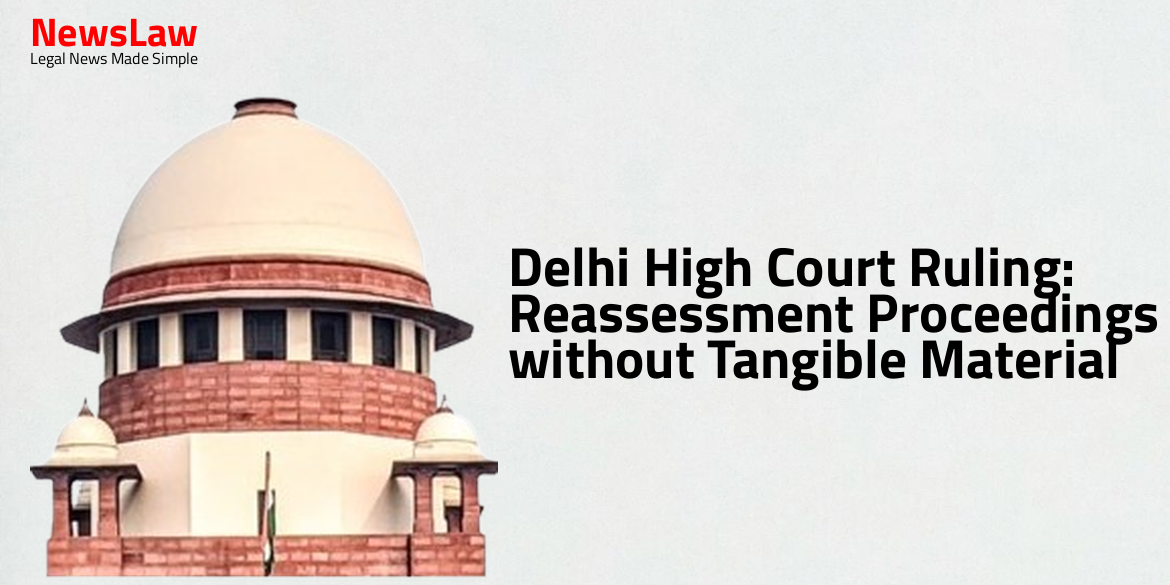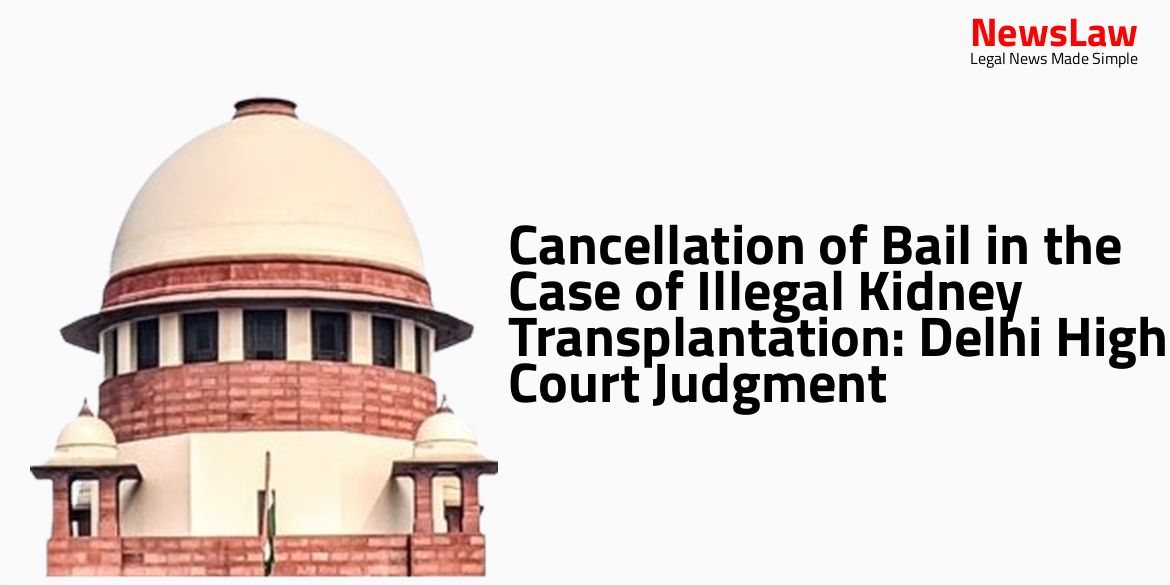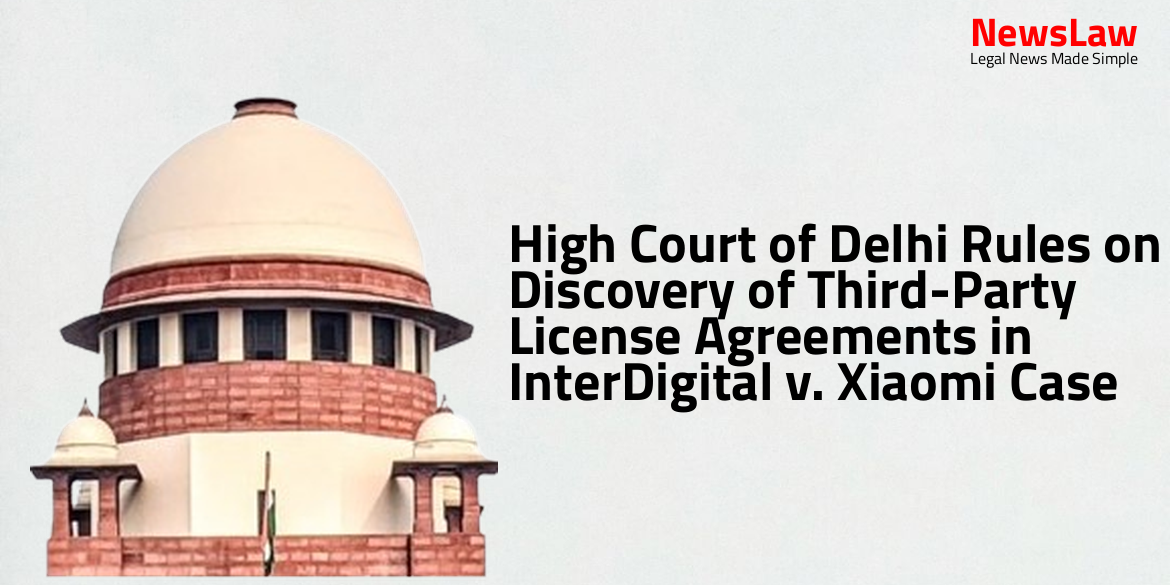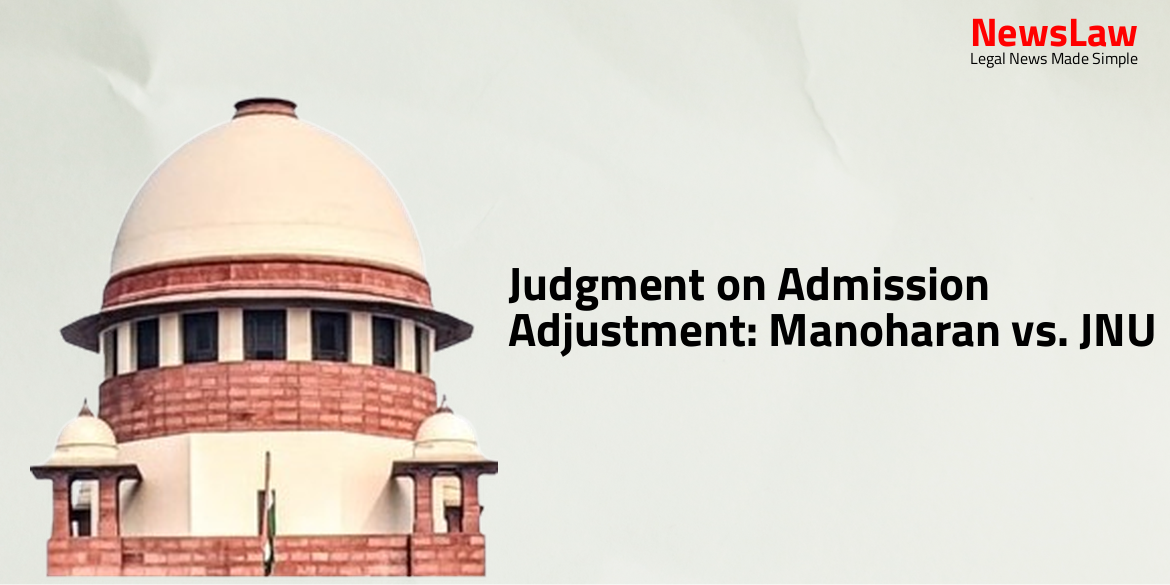In a recent ruling by the Delhi High Court, a case involving reassessment proceedings without fresh tangible material was deliberated upon. The judgment sheds light on the restrictions imposed on the Income Tax Authority when initiating reassessment. Learn about the intricacies of this case and the implications it holds for future assessments.
Facts
- The reassessment proceedings against Original Name were initiated for AY 2002-03.
- The ITAT invalidated the reassessment proceedings as there was no fresh tangible material available.
Issue
- The issue of contention in this case revolves around the presence of fresh tangible material for the Revenue to justify reopening the assessment.
- The central question at hand is whether there existed new and concrete evidence that could have warranted the reassessment by the Revenue.
- The focus is on determining if there was sufficient tangible material available to support the decision to reopen the assessment proceedings.
- The crux of the controversy lies in the assessment of whether the Revenue had access to any substantiated and relevant new information to initiate the reassessment process.
Arguments
- The counsel for the Revenue argued that the audit objection being accepted by the Revenue implies a lack of true disclosure by the assessee.
- The AO is required to make only a prima facie opinion based on the revenue audit party report at the stage of issuing notice under Section 148 of the Act.
- The notice under Section 148 could not have been issued after four years without tangible material supporting reassessment.
- The Revenue counsel referenced the case of CIT v. P.V.S. Beedies (P) Ltd. to support the reopening of assessment based on factual errors highlighted by the revenue audit party report.
- The CIT(A) was criticized for supporting the reassessment proceedings on grounds not mentioned in the recorded reasons for reopening.
- The revelation of facts about the delivery of vehicles to dealers as incentives came after proceedings under Section 201/201(1A) were initiated against the assessee.
- The initiation of reassessment was deemed valid as the reasons recorded at the time cannot be improved or supplemented during appellate proceedings.
- Non-disclosure of vehicle deliveries and incentives impedes the requirement of true and full disclosure during the original assessment.
- The report provided by the revenue audit party is considered as only information and does not conclusively prove a failure in disclosure of material facts by the assessee.
- The decision in P.V.S. Beedies case may not apply to the current appeal as it does not favor the Revenue.
- Referring to the case of Willmar Schwabe India (P) Ltd. v. CIT, it is emphasized that the Revenue must specifically point out in the reasons recorded that there was inadequate disclosure by the assessee.
Analysis
- The authority to reassess income under Section 147 of the Act is circumscribed with a predominant condition that the AO must be in possession of reasons to believe that any income chargeable to tax has escaped assessment.
- The AO has the power to reassess, not to review.
- Reopening beyond 4 years from the end of the assessment year is justified if tangible material exists to indicate income escapement.
- The report provided by the revenue audit party alone may not be sufficient to infer non-disclosure of material facts during the original assessment proceedings.
- The initiation of reassessment proceedings lacks a clear link between the reasons recorded and the formation of belief under Section 147 of the Act.
- The reasons for reassessment do not specifically refer to a failure in disclosure of material facts by the assessee.
- The initiation of reassessment proceedings after more than four years lacks tangible new material outside the existing record to warrant such action.
- The reassessment proceedings were triggered without a clear mention of how the alleged non-disclosure by the assessee occurred.
- Reopening the case based on a factual error pointed out by the audit party is deemed valid under the law.
- The assessment authority must disclose specific fresh tangible material justifying reassessment after the statutory four-year period.
- Reassessment proceedings cannot be solely based on audit report objections.
- The concept of ‘change of opinion’ is a test to check abuse of power by the assessing officer.
- Parliament initially deleted ‘reason to believe’ and inserted ‘opinion’ in Section 147 of the Act, but later reintroduced ‘reason to believe’ after representations from companies.
- In Donaldson India Filters Systems v. Deputy CIT, the assessing officer must disclose tangible material for reopening assessments under Section 147.
- The AO can only reassess if there is tangible material indicating income has escaped assessment.
- Initiating reassessment based solely on audit report objections is deemed bad in law.
- The purpose of an audit is to ensure compliance with rules and procedures, not to substitute for Revenue authorities in statutory duties.
- The power to review is different from the power to reassess.
Case Title: PR. COMMISSIONER OF INCOME TAX DELHI – 8 Vs. M/S SAMSUNG INDIA ELECTRONICS PVT. LTD. (2024:DHC:4572-DB)
Case Number: ITA-1445/2018



